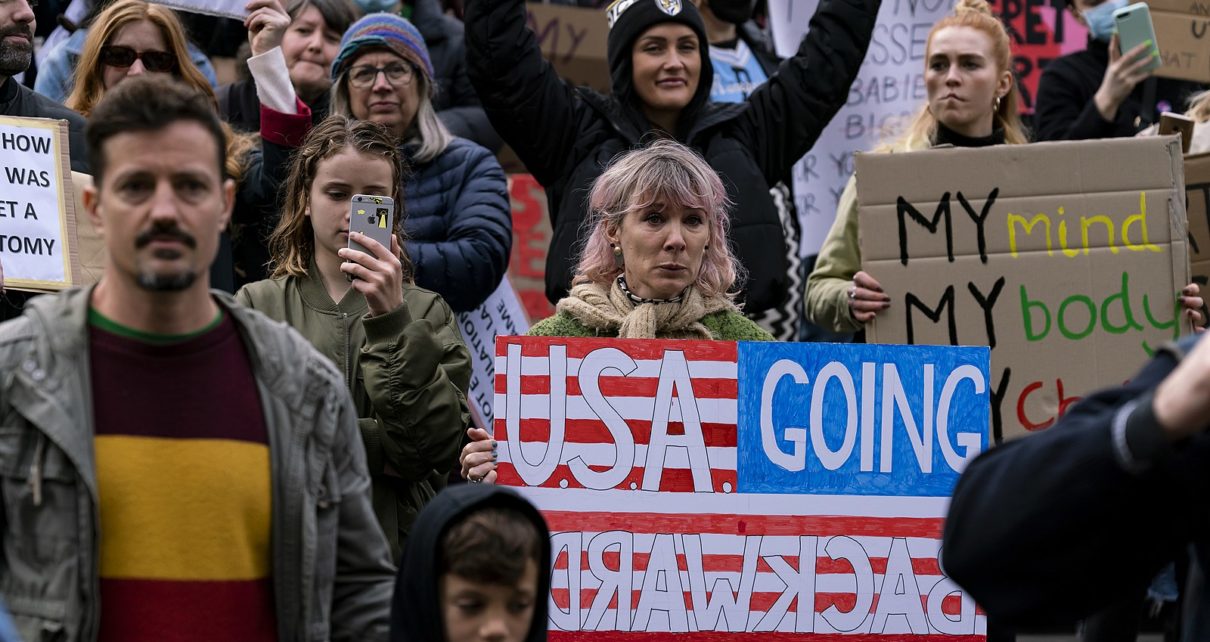On June 24, the US Supreme Court overturned the 50-year-old precedent for Roe v. Wade, revoking the constitutional right to an abortion. The ruling faces broad opposition in the US and across the world, citing women’s human rights and health protections as the main concern. Following a leak of the Supreme Court’s draft opinion in early May, US opinion polls showed that 66 percent of Americans disapproved of overturning Roe v. Wade. International actors, including UN Secretary-General spokesperson Stephane Dujarric and world leaders abroad, such as UK Prime Minister Boris Johnston, have also spoken out against this ruling. The new ruling puts the US at odds with most NATO member countries, demonstrating that concerns for human rights and democracy may be at risk.
The past few decades have seen the liberalization of abortion laws. Countries that previously had stark anti-abortion laws have legalized abortion, including Ireland, South Africa, Tunisia, and Benin. Access to safe abortion has been established as a human right by various international bodies, including the European Court of Human Rights, the African Commission on Human and Peoples’ Rights, and the Inter-American Court of Human Rights. UN experts argue that the overturn of Roe v. Wade neglects the views of international law and the human rights of women that these laws serve to protect. An information series published by the UN Human Rights Office of the High Commission states that denying women access to abortion is a violation of the “rights to health, privacy and in certain cases the right to be free from cruel, inhumane and degrading treatment.”
In a statement, UN Women, an organization committed to ensuring the rights of women and girls are upheld worldwide, lays out the importance of reproductive rights to women’s rights. In this context, the US Supreme Court’s decision violates the US Constitution, which bolsters a commitment to women’s liberty, protected under the Fourteenth Amendment. Considering an abortion allows women to make decisions about their own bodies, the right to an abortion is an inherent part of the broader entrenched right to women’s liberty. The Fourteenth Amendment also advanced women’s reproductive rights by making the right to an abortion implicit to a women’s right to privacy. While the constitutional right to an abortion is in constant federal dispute, laws enacted despite constitutional protections, especially in the context of basic rights to liberty, can put democracy at risk.
Rollbacks to women’s reproductive rights are seen increasingly in democratically backsliding countries, also referred to as autocracies. The overturn may therefore be emblematic of the democratic backsliding seen in the US in recent years, typical of extremist attitudes seen during the Trump era, and the reinforced political polarization witnessed during the coronavirus pandemic. The Global State of Democracy Report 2021 found those countries moving towards an “authoritarian direction in 2020 outnumbered those going in a democratic direction,” demonstrating that the draw towards autocracy is not restricted to the US. The interrelated nature of authoritarianism and strict abortion laws is apparent in the fact that aside from the US, only approximately 10 other states have limited access to abortion since the 1990s. Of these countries, the US and Poland are the only states that Freedom House ranks as completely “free” in terms of “access to political rights and civil liberties.”
The US, like other NATO member countries, has an obligation “to respect, protect and fulfill human rights, including those concerning sexual and reproductive health and autonomy,” according to Human Rights Watch. Following this Supreme Court decision, the US is moving out of step with most of the member countries of NATO, which works to uphold values of democracy and human rights often consistent with liberalized abortion legislation. Aside from the US, Poland and Turkey are the only other NATO countries to hold strict anti-abortion restrictions. While Poland holds exceptions in instances of rape, incest or when the health of the mother is in danger, US states like South Dakota, Kentucky, and Louisiana hold exceptions only if there is a substantial risk for death or harm to the women.
Considering the US is a country frequently looked to as a global leader that has a significant effect on policies in other parts of the world, the Supreme Court decision sets a troubling precedent for other countries that might follow suit. In Canada just last year, a majority of Conservative MPs voted for a bill that sought to restrict certain abortions. The overturn may encourage other countries to follow in the US’ footsteps. The UN’s sexual and reproductive health agency shares this same concern, stating their fear that “more unsafe abortions will occur around the world if access to abortion becomes more restricted.”
While the overturn of Roe v. Wade continues to be subject to dispute, its reversal goes against the statements of international law, organizations, and courts. The decision has the power to harm human rights. Since the US is looked to as a global leader for human rights, the overturn may have implications for democracy and the future of other NATO members.
Image copyright: Roe. v Wade OVERTURNED Protest to defend US Abortion Rights, Matt Hrac from Geelong / Melbourne, Australia, CC BY 2.0, via Wikimedia Commons.
Disclaimer: Any views or opinions expressed in articles are solely those of the authors and do not necessarily represent the views of the NATO Association of Canada.
Author
-
Jordan McEwen is a fourth-year student at Queen’s University, pursuing Political Studies and Psychology. Outside of her education, Jordan is a full-time researcher at the Institute of Intergovernmental Relations at Queen’s University, where she is currently writing a paper on the role of women in transnational crime. Her research passions include political psychology, the role of international organizations, most prominently NATO and the UN, international and domestic Canadian law, and global foreign policy.
View all posts




